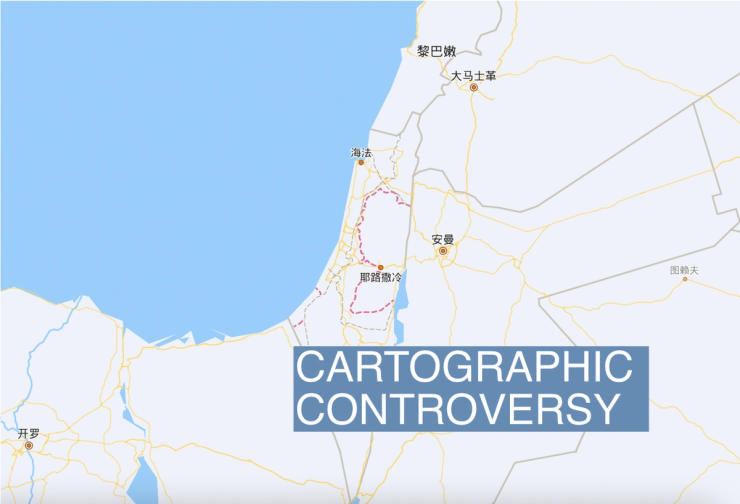The News
Chinese and other social media users expressed shock this week after finding that Israel was not explicitly demarcated as a country on Baidu and Alibaba’s online digital maps. Shaun Maguire, a partner at the investment firm Sequoia Capital, called the move a “major provocation from China.”
China’s foreign ministry, however, dismissed speculation that it had changed its stance on Israel’s borders during a press conference Tuesday, saying that Beijing recognizes the country on official maps.
“I believe you are aware that China and Israel have a normal diplomatic relationship,” Wang Wenbin, a ministry spokesperson, said in response to a question from a Reuters reporter about whether China had asked online map platforms to remove Israel. “The relevant country is clearly marked on the standard maps issued by the Chinese competent authorities, which you may refer to,” Wenbin said.
It’s not clear whether Baidu Maps or Alibaba’s service, Amap, made any changes in response to the ongoing war in Gaza — it’s possible that people may be noticing long-standing features of the two platforms. A Semafor review of both mapping services found that Baidu Maps and Amap did not automatically display labels for either Israel or Palestine. Amap doesn’t label other countries either, and only names cities on its map.
In the Middle East, Amap displayed several capital cities near Israel and Palestine, such as Damascus, Beirut, and Amman. But it did not demarcate Israel’s Tel Aviv or the disputed city of Jerusalem, which were both displayed on Baidu Maps.
Baidu spokesperson Tony Peng told Semafor in a statement that the company may not always display the names of smaller countries due to space constraints. “Users can find corresponding countries or areas on Baidu Maps by simply using the map’s search function,” he said. When Semafor tried searching for Israel, Baidu Maps did navigate to the country, though it still wasn’t labeled. Alibaba did not return a request for comment.
China has not officially condemned Hamas’s Oct. 7 attack on Israel and has criticized Israel’s actions in Gaza as “collective punishment” and going “beyond self-defense.”
Know More
Amap and Baidu Maps are the two most popular platforms for GPS navigation in China. Amap, which is referred to in Chinese as Gaode Map, is considered the market leader. Both are known for having spotty service outside of China; Baidu Maps only began expanding to other regions through a partnership in 2017.
China tightly regulates how maps are depicted in the country, and it has become more aggressive in staking claims to areas it considers its own territory. Last month, Beijing released a new official map that showed land claimed by Malaysia, Vietnam, India, and the Philippines as belonging to China. Baidu Maps similarly shows the independent island of Taiwan as part of China.
Other GPS services, particularly Google Maps, have been scrutinized for changing territorial borders depending on what country users are located in. In India, for example, Google displays the disputed region of Kashmir as under Indian control, while users elsewhere see a dotted line acknowledging that Pakistan also has a claim to the territory, according to a 2020 Washington Post report.

